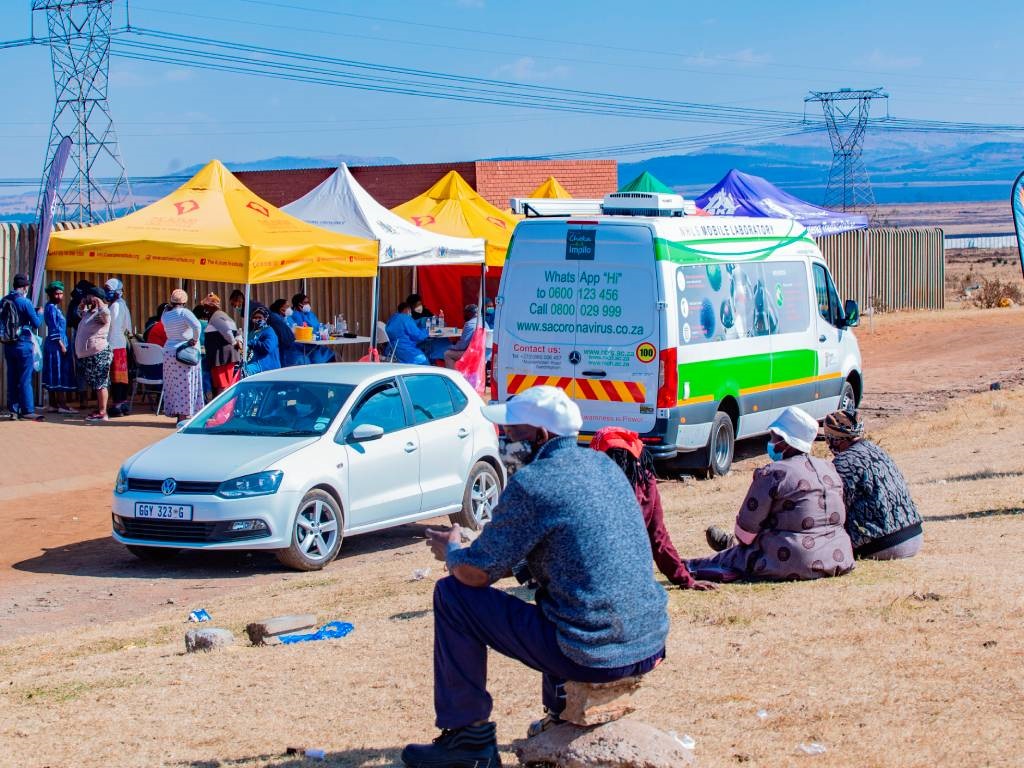- Covid-19 is no longer a health emergency, after 8 986 322 cases and 174 243 deaths in Africa.
- However, the pandemic period presented ground for a global show of power between the US and China in Africa.
- Covid-19 impact exposed the need for Africa to manufacture its own drugs and to strengthen the health sector.
The virus that shut down the world in 2020 is no longer a public health emergency, the World Health Organisation (WHO) declared over the weekend.
However, it does not mean Covid 19 has ceased being a threat, particularly in Africa.
The WHO made the decision after noticing a "decreasing trend in Covid-19 deaths, the decline in Covid-19-related hospitalisations and intensive care unit admissions, and the high levels of population immunity to SARS-CoV-2 (Covid-19's scientific code)".
There are strong fears that there could be a more lethal strand of the virus in the future.
The best way to deal with this is to come up with a long-term plan to deal with the virus.
"While acknowledging the remaining uncertainties posted by potential evolution of SARS-CoV-2, they advised that it is time to transition to long-term management of the Covid-19 pandemic," said the International Health Regulations (2005) (IHR) Emergency Committee.
Understated
As of Friday, according to the WHO's fact sheet, Africa's tally was 8 986 322 Covid-19 cases and 174 243 Covid-19-related deaths since the start of the outbreak in 2019.
READ | WHO officially launches mRNA vaccine hub in Cape Town
A journal entry in the Boston University School of Public Health, titled "What is the prevalence of Covid-19 detection by PCR (polymerase chain reaction) among deceased individuals in Lusaka, Zambia? A post-mortem surveillance study", questioned the rate of reported infections, hospitalisations and deaths in sub-Saharan Africa.
The report suggested that the death toll could have been higher than what the publicly available figures showed.
For example, according to research findings, at a morgue in Lusaka, Zambia, PCR testing revealed active Covid-19 infection in about 90% of corpses.
In comparison, only 10% of those had a positive Covid-19 test when they were alive.
Through lung biopsies in a chosen group, the researchers were able to confirm Covid-19 as the cause of death.
Between July 2020 and June 2021, prime transmission times were used for the study.
Vaccine geopolitics
Covid-19 presented Africa's largest-ever immunisation drive, with 47 African countries joining the COVAX facility, which, by February 2022, had shipped more than 430 million doses to 50 countries on the continent.
This happened as Covid-19 became a new tool in the exertion of global diplomatic influence by world powers, such as the United States, China, and Russia, before the war in Ukraine.
At the China-Africa Forum in 2021, President Xi Jinping said his country would provide an additional one billion doses of Covid-19 vaccines to African nations and push Chinese businesses to invest at least $10 billion (about R180 billion) in Africa over the next three years.
Not to be outdone, according to the Kaiser Family Foundation - a non-profit organisation - the US had, by the end of last week, 186.1 million vaccines to sub-Saharan Africa and 39.6 million to the Middle East and North Africa.
The Australian Institute of International Affairs saw this competition as unhealthy.
The institute said:
By January last year, there were 137 vaccine candidates undergoing clinical trials and 194 candidates in pre-clinical development as world powers sought to dominate in the spaces.
Wasted resources, and hesitancy
From the onset, there was vaccine hesitancy across Africa.
According to the Global Health Research and Policy Journal, the main causes of vaccine reluctance were worries about vaccine safety and side effects, a lack of faith in the pharmaceutical industry, and inaccurate or contradictory media reports.
With Covid-19 no longer a public emergency threat, stockpiles will expire, resulting in taxpayers' money being wasted in many countries in Africa.
During the pandemic, countries such as Namibia burnt some of their expired vaccines, while others, such as South Africa, sought to donate vaccines to poorer nations as expiry dates approached.
According to South Africa's Health Minister Joe Phaahla there's a stockpile of 25 million doses and no takers.
He said at the Presidential Health Summit in Johannesburg last Thursday:
Later during the pandemic, more Western countries began donating vaccines to Africa as a show of power, but, among African thinkers, it was because the stockpiles were about to expire.
According to the Africa Foresight Report of 2022, the rollout was "not inclusive nor adequately planned", and hence Africa was left behind.
The report shows that Africa, home to 17% of the world's population, received only about 6% of the global Covid-19 vaccines.
To date, at most 10% of the African population has been vaccinated, meaning that a majority of African states have not reached the targeted herd immunity.
The silver lining for Africa
In numerous press briefings, Dr Matshidiso Moeti, the WHO's regional director for Africa, reiterated that Covid-19 exposed Africa's weak health sector through failure to ensure access to vital drugs, vaccines, and health technologies.
Explainers were presented to show that Africa manufactured only 1% of its vaccines and due to numerous diseases and conditions such as malaria; the Ebola virus; and HIV, to mention a few, it consumed 25% of the world's vaccines.
With this stark reality, investment in Africa's capacity to manufacture its own drugs became a new business frontier for private international companies to think about how they could get medicines to the continent at affordable prices.
The answer was to build vaccine plants on the continent to cut out the middleman in the pharmaceutical supply chain.
US biotech billionaire Patrick Soon-Shiong chose Gaborone in Botswana and Cape Town in South Africa as hubs for vaccine manufacturing, which are expected to be functional by 2025.
In West Africa, Senegal is set to be a vaccine manufacturing hub, while BioNTech is building its first manufacturing facility in Kigali, Rwanda, to support the production of mRNA vaccines in Africa.
Indicators show the sector could grow from R325 billion ($19 billion) in 2012 to R 4.662 trillion ($259 billion) by 2030.
The African Union has since prioritised its Africa Centres for Disease Control and Prevention as the body's army for health emergencies.
The News24 Africa Desk is supported by the Hanns Seidel Foundation. The stories produced through the Africa Desk and the opinions and statements that may be contained herein do not reflect those of the Hanns Seidel Foundation.




 Publications
Publications
 Partners
Partners

























